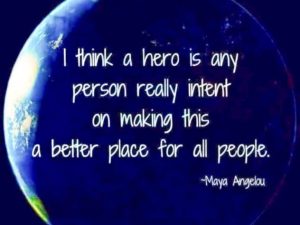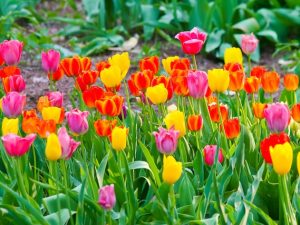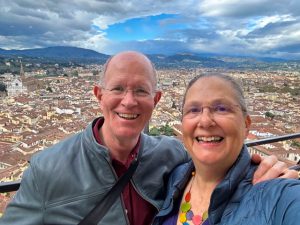Quotes from Spirituality of Gratitude
1 Comment
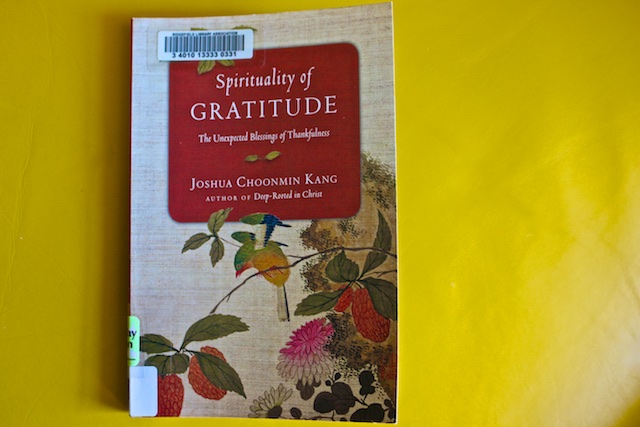
–
Below are some quotes from this book titled Spirituality of Gratitude. While I don’t always agree with the author’s theology, I found it enjoyable to consider the favorite topic of gratitude from another perspective. Here are the bits I especially enjoyed:
- “I am filled with gratitude for my problems. As I study the Scriptures, I realize that where there were problems, there were also God’s miracles. In fact, problems and troubles were the necessary foundation for God’s miracles… For a long time I feared problems, attempting to avoid them, which only caused me to stumble more. But when I decided to confront them I realized that they are opportunities for God to perform his great work… When we refuse to face our problems, we might just be rejecting God’s gifts.”
- “When we give thanks, our eyes are opened and our hearts can understand…The reason we often don’t see correctly is that we see things as we want them to be, not as they really are…But a grateful person is afforded a deeper understanding and the ability to see things as they are…God bestows the ability to see the unseen on those who have gratitude. The more thankful we are, the more good things we see. We can be thankful for all situations because we can see the good and find the good. This is why I begin each day by giving thanks.”
- “The wise are those who are slow but persistent to continue good works. Completing the task is more important than doing it fast. There’s nothing stronger than taking a step forward in meaningful work. Being fast is not strong. Being persistent is strong. Strong people walk consistently in the ways God calls them to walk; it doesn’t matter how fast or slow.”
- “Flowers are beautiful, but fruits are even more precious because seeds are fruits. Our lives are maintained and prolonged by things that come from tiny seeds. No matter how huge something may be, if there’s no life in it, there is no future. In order to experience the power of gratitude, we need to be interested in the little things, as Jesus was. He wanted the little ones to come to him. He praised the servant who was faithful with a little. And he was thankful for five small loaves and two small fish because he saw God’s abundance in the little things.”
- “To be grateful is to be spiritually sensitive, and this has a softening effect on our hearts.”
- “We can find some inspiration from the prophet Habakkuk, who found hope in a hopeless situation. Habakkuk expressed gratitude in the midst of desperation, trembling as he waited for an invasion (Habakkuk 3:16). He was not ignorant of the reality, for it appeared as though there was nothing to rest his hope on. But he saw something that others could not see: God’s saving hand, God’s help. This is why he sang a song of hope: ‘Though the fig tree does not bud and there are no grapes on the vines, though the olive crops fails and the fields produce no food, though there are no sheep in the pen and no cattle in the stalls, yet I will rejoice in the Lord, I will be joyful in God, my Savior.’ Let us have hope during times that seem hopeless. Let us overcome difficult times with faith in God.”
- “Spiritual discipline is needed for true pleasure. If we swallow without chewing, we cannot enjoy the taste of food. Similarly we need to slow down in order to learn how to enjoy ourselves and others.”
- “When God gives us a new year, a new month or a new day, it means that God wants us to end the past properly and start over. The most beautiful day is the day to come. Let us welcome a new day with excitement for a new start.”
- “To live by faith means to live a life of constant letting go. Growth, maturity and renewal require us to let go of the old.”
- “Children who know how to play alone learn not to fear being alone as adults. Adults who do not fear being alone know how to give others their own space and time, to not exert pressure in circumstances and relationships. They are able to love others not only with what they have but with who they are, because love is not about having but about being.”
- “The word ‘encouragement’ has its root in courage. To encourage is to put courage into someone. To put energy into a person…when we live the life of an encourager, we become imitators of God. This is why the life of an encourager is beautiful.”
- “We know well the story of the ten lepers in Luke 17. Jesus healed ten lepers, but only one came back to thank Jesus… Of course the nine others were thankful to be healed, but they didn’t return to express their gratitude. And gratitude only has power when it is expressed… Let us express gratitude. There isn’t a financial expense, so it’s something we can all afford to do. Let us choose gratitude over blame, for gratitude is like a magnet that attracts the better things.”
- “With a proper attitude, anything experienced can become a blessing. But how can we respond appropriately? We need God’s perspective to filter our interpretation of any situation. We need his sovereign and eternal perspective on everything…We often think that obstacles are the problem, but we ourselves are the main problem. Our perspective regarding obstacles is more important than the obstacles themselves. If we see obstacles from God’s point of view and treat them with gratitude, obstacles are tools of God’s favor.”
- “Let us choose gratitude during the pause between stimulation and response. And let us respond to difficult situations creatively, with gratitude. Then we can experience God’s hand, which changes our sadness into joy.”
- “Once we open our eyes to the sublimity of the mundane, everything seems to be miraculous. Albert Einstein said, ‘There are only two ways to live your life. One is as though nothing is a miracle. The other is as though everything is.’ People of gratitude consider everything miraculous. As G.K.Chesterton famously wrote, ‘We are perishing for lack of wonder, not for lack of wonders.’ One grain of rice will produce 180 rice grains. When planted, one potato produces about sixty potatoes. One female salmon contains more than three thousand eggs. To sow a tiny black watermelon seed and see a harvest of hundreds of watermelons is to witness the miraculous. Everyday we are surrounded by God’s abundance and his magnificence; miracles aren’t things we create but what we discover and experience.”
- “There is a Chinese proverb that says that we should remember the source of the water when we drink it. If we remember the source of the water, then we can be thankful. If we remember the work and sweat of the farmers who provide the food we eat, then we can be thankful. And if we remember God, who provides the seeds, the sunshine and rain accordingly to the farmers so we can eat our meals, we can be thankful.”
- “A true scientist stands in awe of God.”
- “In Man is Not Alone, Abraham Joshua Heschel insists that ingratitude is the reason for modern society’s unharmonized status. Our ingratitude is due to lack of wonder.”
- “The hopeful future belongs to readers. So many of the world’s greatest leaders are prolific readers… readers have spiritual wealth.”
- “Artists see things differently. Michelangelo’s David is an amazing example of this. The block of marble used for the sculpture had already been worked on and abandoned fifty years earlier by Agostino de Duccio. Michelangelo saw the completed David inside that useless piece of marble. All he had to do was set the hidden David free.”
- “Play helps us discover the hidden potential deep within us.”
- “We care for the inner flame through silence. When we speak too much, the flame fades and our hearts grow cold. A cold heart becomes hardened, and this produces stubbornness; that heart chases away flexibility, allowing obduracy room to settle down. But the human heart is meant to be warm and soft, since that is how life is sustained… Let us limit our speaking and have more times of silence. If we can be silent, then we will hear more of God’s voice and learn to listen to others.”
- “Gratitude comes from self-contentment… Happiness is not about satisfying desires but controlling them; the happiest people are those that are self-content.”
- “When we become curious, we enter a whole new world. Curiosity often leads us to new dimensions of learning, sometimes challenging us and sometimes refreshing us. Divine curiosity has the power to change us and bring us into contact with the marvelous.”
- “Gratitude involves finding and expressing what we are thankful for. We should examine ourselves to see how we feel and what happens to us when we give thanks. Pay attention to how relationships are improved and how hearts of others are touched through gratitude. These insight can bring us deeper into the world of gratitude. Let us all become artists of gratitude, who give thanks in all circumstances.”
- “Let us not be in such a hurry that we cannot take the necessary time to pray. More than anything else, let us pray the prayer of thanksgiving, the prayer so important that Meister Eckart said, ‘If the only prayer you ever say in your entire life is thank you, it will be enough.'”
–
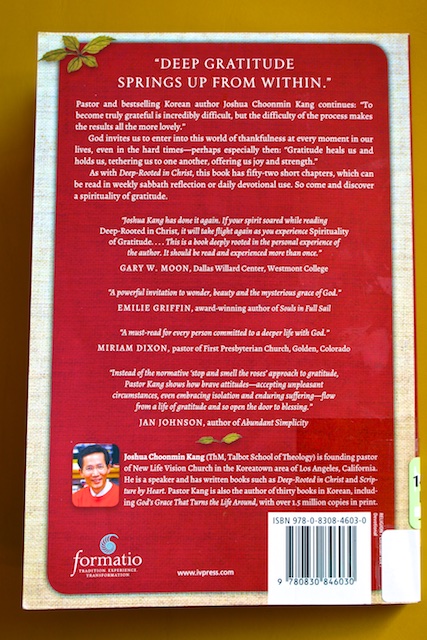
1 Comment
-
Dear Polly,
This has so many inspiring ideas on gratitude. Thank you deeply!
Happy Thanksgiving!
with Love,
Jobie
